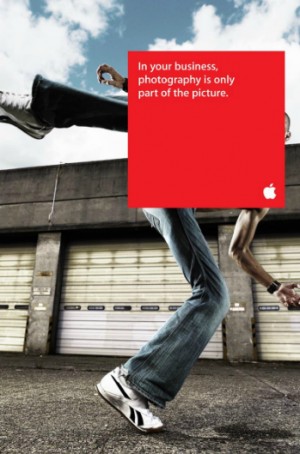 Contracts can be a nightmare. I’ve never loved contracts even for a hot second, but fortunately I’ve surrounded myself with an awesome Executive Producer who really likes them — Kate (she’s also my wife), and a great lawyer or two. We know what a pain point this can be for creatives everywhere, so we sat down and pulled together a series of 15 tips aimed to help you navigate these messy waters. We know legal advice can be ridiculously expensive and is often hard to afford/want to pay for, however, in order to run a successful biz, the need for some legal work is inevitable… The trick is to find a balance between spending and managing risk.
Contracts can be a nightmare. I’ve never loved contracts even for a hot second, but fortunately I’ve surrounded myself with an awesome Executive Producer who really likes them — Kate (she’s also my wife), and a great lawyer or two. We know what a pain point this can be for creatives everywhere, so we sat down and pulled together a series of 15 tips aimed to help you navigate these messy waters. We know legal advice can be ridiculously expensive and is often hard to afford/want to pay for, however, in order to run a successful biz, the need for some legal work is inevitable… The trick is to find a balance between spending and managing risk.
To help strike that balance, here the list we use to keep our bills as low as possible and still meet that baseline of comfort.
1. Find a lawyer before you need a lawyer. While the task may sound daunting, it is way, way, way better to make the time early so you don’t feel rushed in an already stressful situation. Start by asking for recommendations from friends, industry acquaintances and local professional organizations and develop a short list of options. Then meet with a few attorneys to find the best fit. Take advantage of this initial meeting time to share your philosophy and get on the same page. This will save you time and money later. If at all possible, try working on a few projects together to see how it goes.
2. Find a lawyer that is a good match for your personality and your needs. When we were on the hunt for legal counsel, here was our list of wants:
_understands copyright, intellectual property and contract law,
_great at explaining law in layman’s terms,
_understands our business, budget and goals,
_has the necessary technology to work together (document compatibility),
_has time for us, and
_is pleasant to work with.
 3. Understand how lawyers bill. Most lawyers bill in 15 minute increments, so keep your eye on the clock! This includes any and all time working for you, so that means reading email, phone calls or working on your project. Being prepared and organized will save you money. You will also be charged for miscellaneous items like making copies, sending faxes, editing documents, etc, so you may want to take over some of those tasks if it makes sense.
3. Understand how lawyers bill. Most lawyers bill in 15 minute increments, so keep your eye on the clock! This includes any and all time working for you, so that means reading email, phone calls or working on your project. Being prepared and organized will save you money. You will also be charged for miscellaneous items like making copies, sending faxes, editing documents, etc, so you may want to take over some of those tasks if it makes sense.
Some firms want you to pay an advance fee or retainer, where you pay a certain amount in advance and then are billed against that amount as work is completed. These types of agreements are common and pretty fair, but if you can avoid paying in advance, that is always preferred. If not, negotiate any prepayment as low as possible and never sign up for more time than you think you will use from the firm in a reasonable amount of time – these fees are nonrefundable.
4. Manage costs. Since writing legal documents is an art, there is no one definitive way to express an idea. That said, you can get in editing loops that could go on and on. To avoid this, it is really important to communicate clearly about your needs for every project.
Some other tips:
_provide a per project budget,
_ask for notification if your monthly bill exceeds a certain amount and
_provide some direction on the type of feedback you want
For example, some standard agreements are just that… standard, so I instruct our legal to look for red flags only (after I have read it). In other instances, we may be entering into a very unique type of deal, so we may need more customization. Even in the latter case, you should keep track of time to keep a pulse on the budget.
5. Take advantage of the resources offered by professional organizations. I especially love the American Society of Media Photographers. Among other great member benefits, they offer a wealth of helpful legal information including:
tutorials on bad contracts, copyright, releases, licensing, and more and sample forms like releases, contracts, etc. granted, you will want to customize/localize with your lawyer if at all possible, but it’s a great starting place that will save you time, money and headaches.
6. Create templates when possible. You will find that you use the same documents over and over and you should have solid versions/template of each that can be customized as needed. Start with standardized documents from your professional organization or law firm and work with your lawyer to make them appropriate to your business. Here’s a list of standard documents that would be helpful to have at your fingertips and customize:
_photographer agreement
_estimate, delivery memo, change order and invoice
_model release
_property release
_contractor agreement (for individuals you are hiring)
_non-disclosure agreement
7. Create systems. Whenever you find yourself encountering they same types of legal requests, see if there is a way to standardize or at least create a system for vetting the document so you don’t start from scratch each time. For example, we are often asked to signed Non-Disclosure Agreements before hearing about projects. Every client has their standard document, so I worked with our counsel to create a way for me to vet each before going to our legal. See our earlier post about NDAs HERE.
8. Use a term sheet. A term sheet is a short, bullet-point document, usually one-page, that summarizes the project and specifies the essential terms of your forthcoming agreement. This is a great way to go because it gets all parties on the same page in plain English… and FAST. This ‘cheat sheet’ is a guide to help the legal team translate the project into a formal legal format. Term sheets can be binding or non-binding… that means, enforceable by law or just clarifying. Either can work, it just depends on your needs.
9. Embrace the process. The longer I’m at it, the more I see the process around most legal issues as an opportunity to build a strong relationships with those we want to do biz with. The process gives both sides a chance –through good communication– to really understand the terms and expectations and avoid surprises later. If done well, everyone walks away feeling like they they are winning. And that’s a great way to start a relationship.
10. Understand your lawyers limitations. A lawyer only is as good as the information you provide them with and you know your business way better than your lawyer does. So, you have to work together to end up with a great contract. Think about the deal and make sure you have addressed everything you think is important. I always explain the project and ask myself: what is missing? I always ask my lawyer: what should I be asking?
11. Unravel the mystery of ‘boilerplate.’ Boilerplate is the standard parts of a contract that you almost always need, like confidentiality, severability, assignment, relationship of the parties, governing law and so on. It’s a great idea to work with your lawyer to understand these kinds of standard sections…AND you still need to read them every time! Seemingly small changes can have big impacts.
 12. Take advantage of redlining. In word processing, you can track any changes made by either party as you are editing, suggesting changes and making comments. This redline shows up in a different color the document with a note of who made the change so that others can see the changes that have been made. It makes going back and forth on documents so much easier!
12. Take advantage of redlining. In word processing, you can track any changes made by either party as you are editing, suggesting changes and making comments. This redline shows up in a different color the document with a note of who made the change so that others can see the changes that have been made. It makes going back and forth on documents so much easier!
13. Ask questions/do the research. Use your lawyer, resources online and the process to educate yourself. As you start to understand more, you will be able to ask better questions and avoid pitfalls before you get too far down the line in the legal process. For example, you don’t want to wait until the contract phase of the process to find out that the client wants to hire you to do work for hire (they own the copyright) if you prefer to license your work (you own the copyright).
14. Evaluate risk. All deals have some amount of risk and and you want to mitigate as much as possible. A good lawyer excels at helping you understand your risk so you can make the best decisions… it’s up to you to make the call on what your are willing to sign up for.
15. Read and understand anything + everything you sign. This seem obvious, is essential and yet way too often does not happen. All deals have some risk and you must understand how much risk you are assuming. A lawyer is great for highlighting where you are exposed so that you can make an informed decision. I always pay special, bonus attention to certain sections, like warranties, representation, indemnification and copyright sections.
Bonus: A good thing to remember is that contracts are a good sign… it means that you have new business opportunities and that is exciting.
Hope this list helps you navigate around a few headaches and onto the creative stuff you really want to be doing. Good luck.



















If your efforts are paying off, continue spending more time consistently and genuinely interacting with the new online
community. But, Vine allows very limited space for capturing videos, which makes it very difficult for brands to accommodate their ads
into. HE HAS A DRIVER’S LICENSE AND OWNS A CAR AND CAN VOTE.
are available more carefully resemble the older mattress jackets, featuring
a couple of front closures. Throughout the past lingerie
or “could under garments” has been viewed as boring,
boring, then one that’s shed off instantly before you make
really like. The one on view in the gallery here
is French, from 1880, and decorated with polka dots on cotton.
First off, excellent summary including several non-intuitive aspects easily missed by most. Regarding cost control and risk mitigation, here’s my thoughts on #16 and 17.
16. Take time to do research PRIOR to meeting with legal counsel. In many cases using online searches, you can find best contract practices by others. Compile a list of “best practices” of others, especially those that previously have been “bitten” by unfavorable contract T&Cs or things you never considered to minimize your exposure. And always be mindful to…
17. Remember that most legal counsel is probably not knowledgeable in your domain so it is often up to you to consider your working environment, subtle business conditions, worst-case scenarios, etc. that might occur.
Give this some time to digest when taking a shower, out on the road driving, before going to sleep, etc. Taken to an extreme, let’s say your client is negligent (maybe a drunk client employee who trips and grabs your gear while falling) and breaks your new bright and shiny Red Epic camera into lots of small pieces – who pays the insurance deductible? Here’s what I have:
The Client shall be responsible for careless or negligent acts on their behalf or on behalf of their party or agents that result in damages, loss and the like to equipment and gear owned or leased by [COMPANY]. The Client shall reimburse [COMPANY] within seven days of said damages or loss.
Or what about the situation when you “employ” a second shooter who gets in a car accident en-route to the work location – under what conditions do you need Workman’s Compensation or a Release? In what capacity do they work for you, do you provide their gear, who owns the media, etc.?
Do you allow terms like “Deposit” (which client assumes are refundable) or terms like “Retainer Fee” (non-refundable)?
Do you explicitly state limits of liability to your fee, or is your bank account and checkbook open? Do you have caveats for conditions like:
Illness/death by you and/or staff (hopefully stating fallback strategies and substitute personnel)
Uncontrollable actions (or lack of actions) by the Client’s personnel and guests, staff, vendors, and other parties at the event location
External factors like audio disturbances, ambient noises, floor vibrations, excessive wind, lighting contamination, radio frequency interference, power failure and the like
Unavoidable transportation delays/Accidents/acts of God (force majeure), war, fire, strike, flood, snow storms or other severe weather conditions, earthquakes, explosion, theft, labor trouble, riot or civil commotion
Theft/fire/breakage of equipment
Gear malfunctions, defective media
What are your standards and associated definitions of terms should there be a dispute on the quality of work, etc.? (search photographer Nelson Tang $300,000 lawsuit, Gary Fong on YouTube).
Happy Trails, Michael Nistler
http://www.CaliforniaTravelVideos.com
These are the Apple Mastering Store, the Apple Refurbished Store, and various free giveaways.
It happens to be more powerful and cheaper when compared a MacBook, with a quite a bit larger screen.
Yes! Finally something about soil becoming.